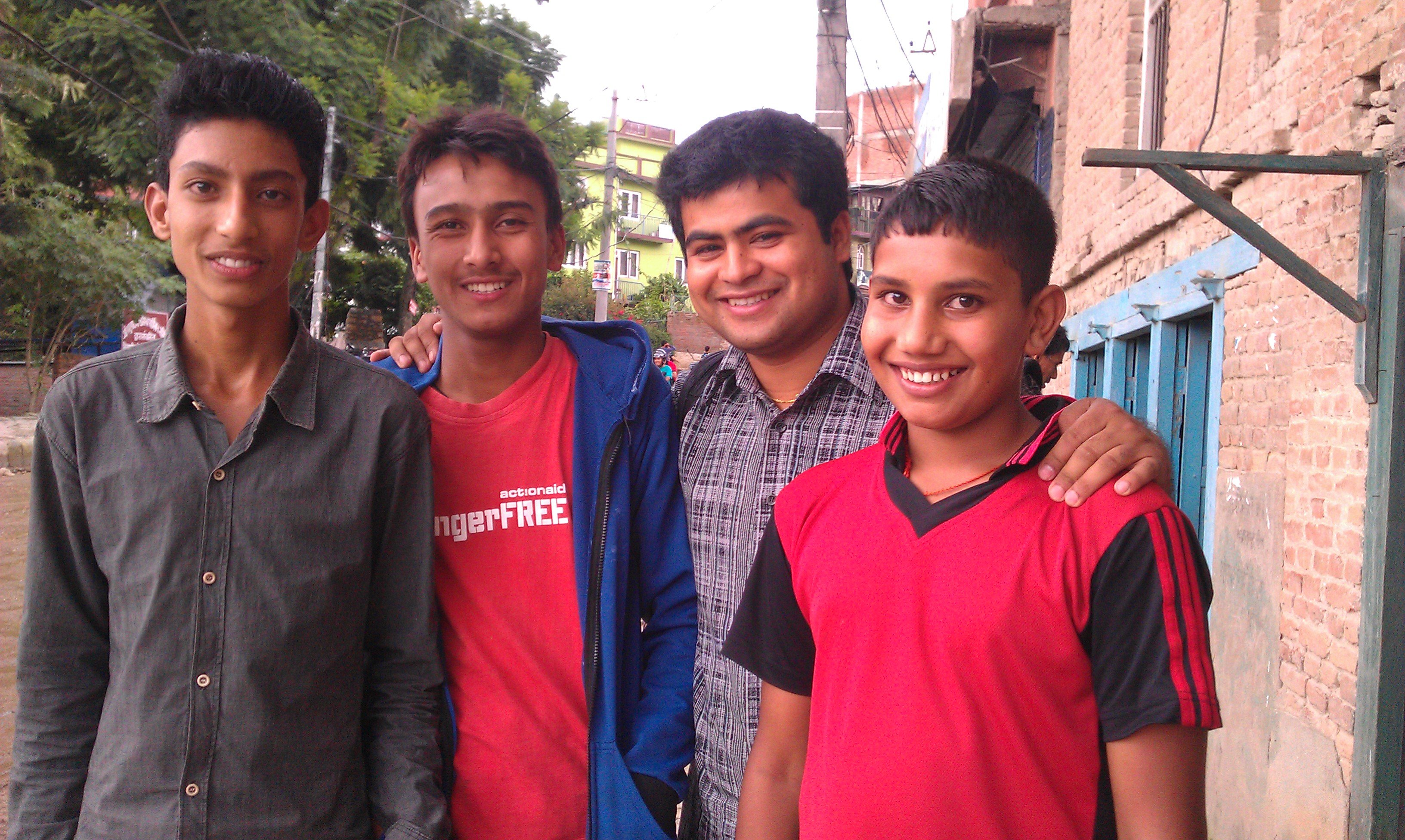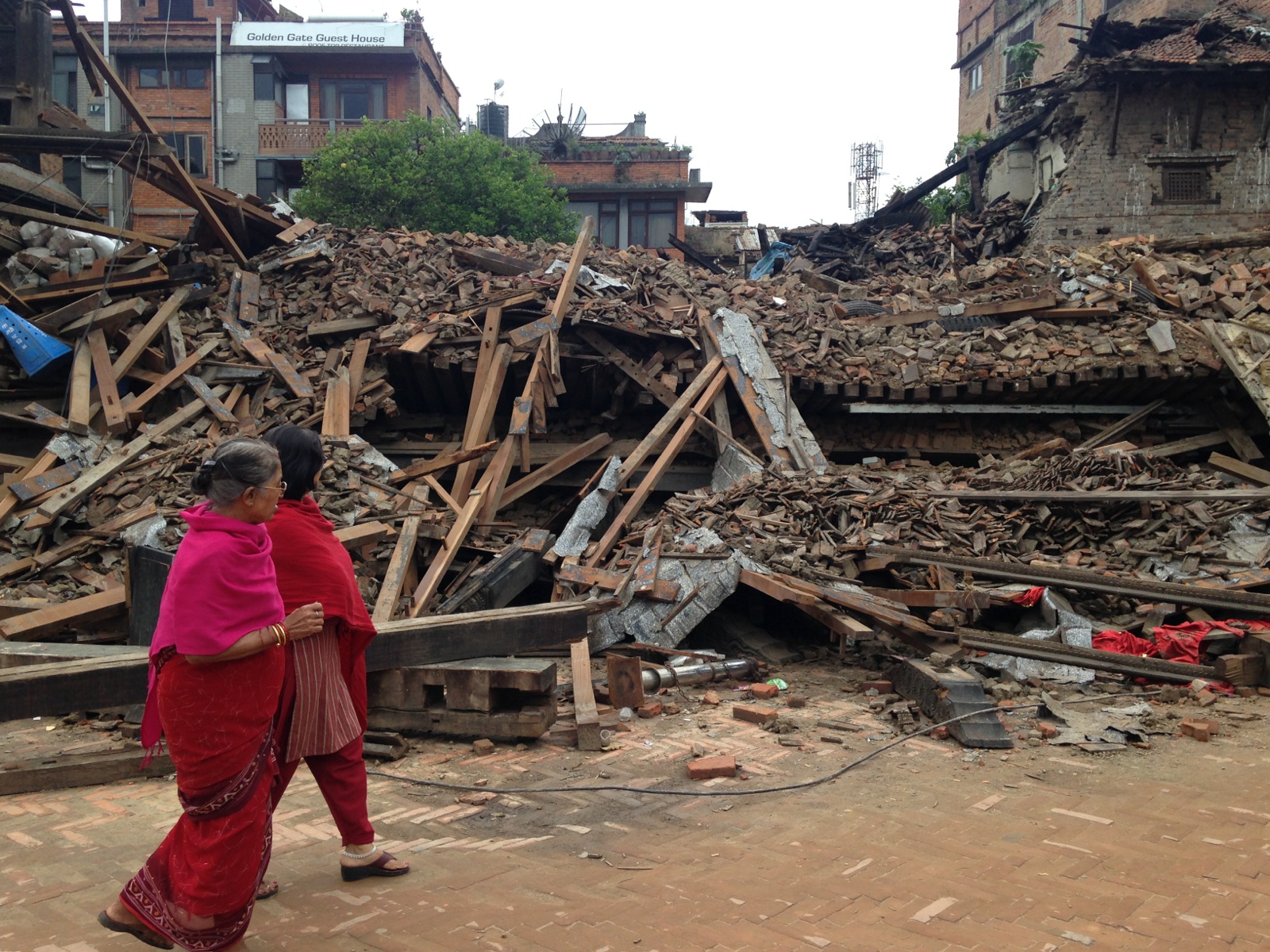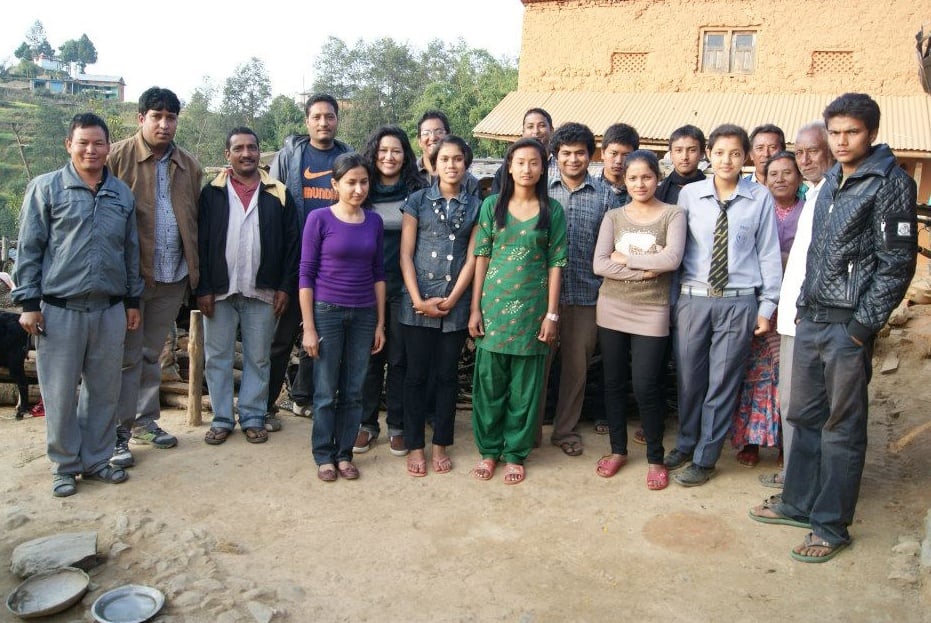Cooke Scholar Shrochis Karki Helps Communities Rebuild After Earthquake Tragedy

When one of this year’s most tragic natural disasters unfolded, a Cooke Graduate Scholar alumnus was among those leading the relief response.
A devastating earthquake struck Nepal on April 25, leaving large swaths of the country in ruins. A second major quake followed just weeks later on May 12. Shrochis Karki, a native of Nepal, first thought to travel back to Nepal to help out with the relief efforts on the ground but then realized he could do a great deal from England. His leadership has thus far proven far more valuable from abroad as he has coordinated the relief efforts of and resources and volunteers at different partner organizations.
“I was quickly building a network with these local organizations, as well as raising funds to the extent possible to support their relief work,” Shrochis explained. “One thing led to another and I ended up being more and more involved, but the core of my work is trying to partner with local organizations who have the skills, knowledge, networks and capacity to reach those not being served by conventional relief efforts.” He adds, “People often confuse local organizations to mean small organizations, but through our collaborative efforts with organizations like Sano Paila and Association of Youth Organizations Nepal (AYON), we have already provided relief packages to over 200 villages in all the hardest hit districts.”

You may remember Shrochis Karki from the profile we posted on our site after he was awarded the Matthew Quinn Prize, or perhaps an article that appeared in the New York Times last year. Shrochis recently earned a Ph.D. from the University of Oxford in international development and is working as a consultant for Oxford Policy Management. He co-founded the Samaanta Foundation, which has established a fellowship program for high-achieving high school students in Nepal’s rural areas that includes secondary education, leadership training, and access to mentors, internships, and summer experiences—not unlike the Cooke Foundation. It has already graduated its first group, and currently has eight fellows.
So while he was still verifying that his own family and friends were safe after the initial quake, Shrochis also went to work trying to determine how it may have impacted Samaanta’s students. Fortunately, everyone has been accounted for and is safe. However, conditions are difficult.
“We are getting more reports from our fellows and their communities, and the message we are receiving is mixed,” Shrochis said. “The good news is that none of our fellows or their immediate families and friends have reported any fatalities as a result of the earthquakes. The bad news is that most houses in their villages are completely devastated. Three of our fellows have lost their homes, and in one village where we work, only two out of 112 houses remain.”
While the scope of need in the wake of such tragedy can at times be overwhelming, the burden has been lessened somewhat as Shrochis and his colleagues have been able to tap into their network of contacts, many of whom have been eager to help. He says Samaanta “has been receiving lots of personal and institutional funds to channel to the right local organizations, and we are using our extensive networks and support teams on the ground to ensure we are reaching those areas still waiting for the first relief packages.”
The real trick has been to find ways to address the current emergency needs while also finding solutions that might provide some benefit over the longer term, especially as the monsoon season approaches. The rural communities Samaanta reaches are already in many ways marginalized, and the earthquakes have made them even more inaccessible, making communications and the delivery of goods extremely challenging.
As concerned as Shrochis and his partners are with the situation of Samaanta’s fellows and their families, they know they must also reach out to the wider communities in which their fellows and families live.

One thing Samaanta is already doing to reach out to the communities is working with Karkhana and Rato Bangala Foundation to bring to scale a “First Day Back” program to train teachers to help traumatized children cope with the recent devastation once schools start. Shrochis said their hope was that they could “use engaging and innovative techniques to help teachers improve the learning experience for children even after the immediate concerns arising from the earthquakes have been addressed.”
“The challenge here is, we cannot really carry forward our relief or rehabilitation work by only focusing on our fellows,” Shrochis noted, “because if we as a group with some access to resources go to the villages and provide them tents and food and immediate relief without addressing their wider communities, then we again create a situation where…we are re-creating inequality in a different way.”
However, despite balancing different immediate and longer-term needs, Shrochis is quick to distinguish between relief work and development. In order to move forward with the latter, the hard realities of the former must be dealt with. As an organization supporting education, Samaanta will need to take stock of damage done to schools and related infrastructure and focus on recovery over the coming months and years in order to provide Samaanta students with the most meaningful educational experiences. That will require a sustained effort.
“Right now I think we’re at a stage where instead of trying to provide answers for how to move forward, we’re trying to frame the right questions to understand how we should move forward,” Shrochis reflected.
“Our hope is that in the next few months we’ll have greater clarity on how the Foundation can directly support this rehabilitation work, not just of the education system, but the broader engagement with rural communities in both areas where we work but also across Nepal.”
In order to better inform that process, Shrochis has asked volunteers from partner organizations to document their experiences through photos and writing a few thoughts down each day. The team will then compile that information in a few months after relief efforts have subsided in order to get a clearer picture of what to do next. Regardless, he remains hopeful.
“The extent of the challenge that lies ahead of us is immense, but we promise to work not just with our fellows, but also their communities to help them rebuild their homes and their lives in the coming days. Nepalis in Nepal and around the world are just giving in everything: their time, their resources, their money, their contacts, to really make a difference. It is quite heartening to see that,” he said proudly.
Shrochis certainly stands tall among them.
If you would like to donate to the Samaanta Foundation’s earthquake relief efforts, click here.